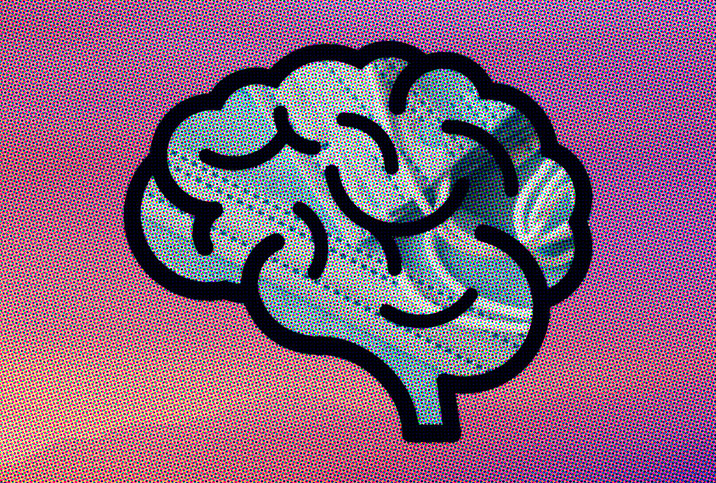Foreshortened Future: How COVID-19 Might Worsen This Trauma Response

When we discuss trauma, we often talk about hyperarousal, intrusive thoughts, avoidance behaviors and more. What discussed less frequently is how the experience of time itself changes after a traumatic event; namely, how trauma can produce feelings that life may be suddenly cut short.
Believing the end of your future is imminent is called a sense of foreshortened future, which may manifest when people don't think they can hit specific milestones, such as having a successful career, getting married, having children or reaching a particular age. With a sense of foreshortened future, your sense of trust is impaired. You might mistrust the world, your sense of agency, or success and what your future might hold.
The most recent edition of the Diagnostic and Statistical Manual of Mental Disorders (DSM-5) classified a sense of foreshortened future under post-traumatic stress disorder (PTSD) as "exaggerated negative expectations regarding important aspects of life applied to oneself, others or the future."
These feelings can be subtle and subconscious or more pronounced. Time distortion affects people to varying levels of severity, but therapy and coping skills can help.
Foreshortened future and PTSD
"A foreshortened future is a sense that life will end abruptly or that you aren't capable of achieving anything meaningful in life," said Esther Goldstein, L.C.S.W., trauma specialist and therapist at Integrative Psychotherapy, based in Long Island, New York.
Simone Saunders, M.S.W., is the managing director of the Cognitive Corner, a psychological practice in Calgary, Alberta, and a DiveThru therapist. Saunders explained that a sense of foreshortened future can manifest as thoughts or a sixth sense. Before trauma, we have a set of assumptions about how the world functions, such as, "The world is safe" or "I can rely on others."
"After we've experienced trauma, these assumptions drastically shift in order to increase our likelihood of survival," Saunders said. "That shift in assumptions may look like 'I won't live as long,' 'I won't have a career,' 'I won't have meaningful connections,' 'I'm not safe.'"
How people respond to trauma depends on various factors, such as mental health, support at the time of the incident and prior history of trauma.
Even without PTSD, some people might perceive a sense of foreshortened future from the pandemic, especially if they were exposed to a great amount of loss.
"When we feel unsafe and hypervigilant, we don't have the luxury to think far ahead or make plans," said Julie L. Hall, a narcissistic abuse recovery coach based near Seattle and the author of "The Narcissist in Your Life." "We may feel dread or hopelessness about the future and lose confidence in our ability to help ourselves and those we love."
"It can create difficulty for some to plan for the future or obsessive planning," Saunders added. "It can increase impulsivity, increase anxiety, and many find that when they do reach an age/milestone that they thought they wouldn't, they feel unprepared, which increases the feelings of anxiety and depression."
For instance, if someone experiences a sense of foreshortened future, they may impulsively spend their money, feeling as though they have nothing to save for down the road.
A potential uptick of foreboding
COVID-19 has laid the groundwork for a pervasive experience of collective trauma, leading to a societal response to ubiquitous loss, such as losses of loved ones, friends, patients, jobs, schooling or social engagements. As a result, mental health crises have skyrocketed over the past two years.
While everyone has experienced some sense of trauma due to the pandemic, not everyone develops post-traumatic stress disorder. An individual's responses to trauma, Saunders explained, is the result of myriad subjective factors, such as temperament, social support, genetics, child development, culture and personality.
But even without PTSD, Saunders noted some people might perceive a sense of foreshortened future from the pandemic, especially if they were exposed to a great amount of loss.
Rates of substance abuse, suicidal thoughts and youth suffering from major depression have all increased due to the pandemic, according to Mental Health America's 2022 findings. Research published in the International Journal of Mental Health Nursing indicated COVID-19 not only can cause PTSD but has increased the rate of PTSD.
"For many people, the pandemic has led to sudden and dramatic destabilizing conditions," Hall said, explaining that people might experience both grief for the loss of the life they've known and fear and uncertainty about life ahead, which might lead to a sense of foreshortened future.
"[This sense] allows your brain to feel like there's something that's within your control, which is preparing for what feels like the inevitable demise of ourselves, friends or community," Saunders said.
Framing the sense of foreshortened future
It may be helpful to frame a sense of foreshortened future as a normal response to an abnormal event. Goldstein said normalizing the experience of time distortion can benefit people who suffer from it. Expressing the sentiment, "It is normal and pretty common, especially given the state of the world," can help.
Finding a sense of security, whether in a person, place or healthy everyday ritual such as a mindfulness practice, can also be helpful. Goldstein recommended becoming more intentional about reaching for these safety anchor points when someone finds their thoughts wandering down a dark portal.
If trauma is influencing how someone feels about the future or everyday life, it may be time to seek support from a trauma-informed therapist. Goldstein said modalities such as somatic therapy, EMDR (eye movement desensitization and reprocessing), cognitive therapy, expressive arts and supportive therapy can help people who have experienced trauma.
"I always think it's important to remind those struggling with this symptom that this is your brain's way of keeping you safe," Saunders said. "At some point, this perspective was instrumental in your survival, and in the same way this response was learned, it can be unlearned."

















